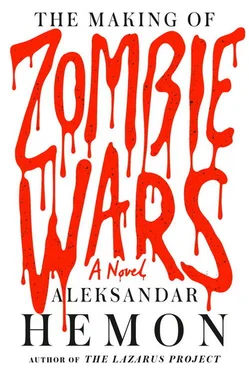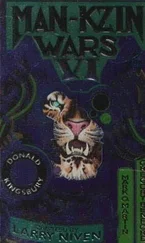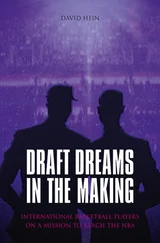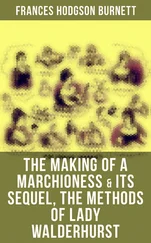The thing was that Joshua wasn’t expected, let alone required, to teach female anatomy in his class, or indeed anything at all that could have significant application in his students’ lives. The ambition of his employers at the PRT Institute’s ESL program was to train the students to pass the mandatory state tests, which made the institute eligible for the funds needed to issue educational visas to Jews arriving from the former Soviet Union. The presence of other refugees — say, Bosnians — provided a convenient veneer for the noble scam the institute was perpetrating: the whole operation was really a front for a resettlement program, a leftover from the heroic Operation Exodus times. Joshua had no problem with anything that helped his people get the hell out of the Cossack lands, he’d assured his puny, frightfully balding boss, Mr. Strauss, who’d summoned him to his office to demand, softly and unequivocally, that he stay away from the vagina and similar genitals and stick to grammar, useless though it may be. “We,” Mr. Strauss said, patiently picking his point out of the depths of his nostril, “have larger roles to play.”
* * *
That particular Tuesday class was devoted to the elusive mysteries of the future perfect, a tense that in its dull clunkiness was bound to get on the nerves of Captain USSR and his troops. Bravely, Joshua consulted the textbook ( Let’s Go, America! 5 ) and wrote an example on the chalkboard: By the time I am seventy-five I will have had my knees replaced. Facing the wall of contempt, he underlined I will have had with an unnecessary flourish. “This is the future perfect. It’s used for an action that will be completed by a defined point in the future,” he recited, slicing up the sentence into its bits, pretty much running out of the things he cared to say about it.
Yet Ana was leaning forward, her eyes lit up as though she really cared how the idiotic tense worked. The rest watched him blandly, counting the minutes — in Russian, no doubt — to the break. Joshua conjugated the verb by erasing I and writing you , then erasing you and writing he/she/it . He read it all aloud, while considering the possibility that Ana might be focusing on him. He disliked his emaciated, bony frame (his father had once told him he had the body of a fanatic), his large feet, his overbite, and his pencil-shading facial hair, which made him look dark-skinned. He could never entirely reconcile the strange fact of Kimiko’s attraction with what he saw in the mirror. At best, it was related to her natural stoicism, as if Joshua were a kind of bonsai tree she trimmed and watered lovingly. “I enjoy being with you” was her preferred mode of expressing her affection. At worst, she kept him around so he could make her feel better when she needed it, a winning combination of a pet and a dildo. Somewhere along the range between the best and the worst, there was the possibility of her deep love. When we love a thing like ourselves, we strive, as far as we can, to bring it about that it loves us in return.
Now then, what could Ana be seeing in Joshua?
Back at the Westmoreland, Bega had ardently flaunted his own un-Americanness, complete with experience unattainable to the likes of Joshua. Whatever troubles Joshua had gone through to end up on the stool next to Bega were nothing compared with war and displacement and survival and all that heavy stuff. Bega had kept using the phrase life problems , which Joshua had previously been inclined to interpret as the problems inherent in being alive . According to Bega, however, even if there were different kinds and degrees of such problems, all of them could be reduced to the simple difference between being alive and staying alive. “There are people who just live and there are people who just survive,” Bega had said. “Americans live, we survive.” It’d all been told jokingly and back-slappingly, of course, and Joshua had laughed it up in drunkenness, but it had been undeniable that, as far as Bega had been concerned, Joshua’s life was too good to be good enough and that he could never attain the noble title of survivor. Joshua had submitted his survivor grandparents along with thousands of years of anti-Semitic oppression, to claim some legitimacy, but Bega would have none of it — Joshua’s fundamental Americanness was all that really mattered. “Your life,” Bega had told him, “is warm blanket.”
But here was a random Tuesday when Joshua’s best student, a beautiful woman clearly belonging to the elect Bosnian survivor tribe, appeared interested in him, despite — or perhaps because of? — his warm-blanketness. The magnifying glass of her gaze burned the back of his neck as he was trying to come up with examples of the future perfect less moronic than Let’s Go, America! 5 offered. All he could think of was By the time the world ends we will all have lived , but he did not wish to put that up on the chalkboard, lest he look too pretentious, clearing the way for an argument with Captain Stalin. Nonetheless, his waffling was quickly punished.
“Teacher Josh,” Larissa asked, “why you cannot say, ‘I will replace my knees’?”
“You could,” Joshua responded. “But it’s much better this way.”
“What is correct?” Captain P needed to know, testily banging at his notebook with a pencil, as if beating a dissident with a shovel handle. “One must be correct. Not two.”
Joshua could hear the rustle of Ana’s stockings as she crossed her legs. At the Westmoreland, he’d drunkenly spun into claiming that necessity reigned in the world, a natural and therefore moral order was in place, only for Bega to reassert that Josh’s moral system consisted of a little bit of right and a little bit of wrong and a lot of reasonably comfortable — if the order was such, you didn’t have to do much, and it rhymed too. “Survivors have no time to dilly-dally,” Bega had said. Perhaps he hadn’t used that exact phrase; dilly-dally would be a strange idiom for a foreigner to use.
“Both could be correct,” Joshua said. “It kind of depends on the sentence.”
Captain Ponomarenko nodded, slowly, as if all of his expectations of Teacher Josh’s failure had once again been met. If it hadn’t been for the continued deafening rustle of Ana’s stockings, if her perfume had not suddenly floated his way — jasmine was certainly present — Joshua would’ve dared to further pursue his moot grammatical point. But he could sense that an insurrection was brewing, the Russians soon to be fully mobilized by Captain USSR’s susurrous slurs, so he called a break. The students went out to the hallway to stand in a discontented circle where Joshua and his warm-blanket ineptitude would doubtless be the preferred topic. And sure enough, there was an immediate quick fire of derisive laughter. Script Idea #38: A bizarrely rich Russian oligarch hires an American detective to find out what happened to his parents, who were once upon a time arrested by Communists as American spies; as the mystery deepens, the detective pairs up with a beautiful Russian woman; they discover that the Soviets sold the parents’ organs on the underground market; the oligarch wants the organs in order to clone his parents; adventures follow.
Teacher Josh closed the door and embarked upon wiping the chalkboard, sneezing occasionally. The vagaries of the future perfect and Ana’s presence had allowed him to forget temporarily that he’d had to escape from his place and now stayed with Kimmy, the woman who hoarded cock rings and handcuffs. Erasing the future perfect from the board, he couldn’t escape what had happened. He didn’t hear Ana come in.
“Teacher Josh,” she said. He turned around and immediately noticed that her nipples were hard. Looking into her eyes, sea green as they were, required effort.
Читать дальше












